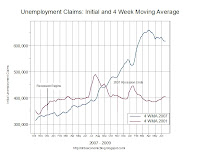Murphy is one of the world's finest economists. In 1997, he received the John Bates Clark medal, awarded to the most promising economist under the age of 40. A year later he was elected to the American Academy of Arts & Sciences, rare for an economist so young.
In 2005, the MacArthur Foundation gave Murphy one of its so-called genius grants in recognition of his research on "seemingly intractable economic questions, placing them on a sound empirical and theoretical footing." And in 2007, he won the prestigious Kenneth J. Arrow award for work on the economic value of health and longevity. "He's brilliant, very brilliant, and I don't use that term often," said Nobel laureate Gary Becker in 2006. "He is at the top ranks in economics."
The first topic is inequality and economic growth. As many have noted, inequality has grown over the last thirty years. Murphy explains that the return on education has increase, resulting in increased inequality.
First, you have to think about the growth of inequality and where it’s come from, and probably the easiest place to start is education and the return that people get on their education. Over the decade of the 1980s and continuing though the 1990s, we saw growth in the premium for going to college. This can be seen best by comparing the average amount earned by college graduates to the average amount earned by high school graduates. In the late 1970s, the ratio of the two averages was about 1.35, saying that college graduates earned on average about 35 percent more than high school graduates.Many people believe that increasing inequality within society is bad and that the "rich" should be taxed at a higher rate to pay for government services to be given to the "poor." I put rich and poor in quotation marks because few ever define where poor ends and rich begins. Knowing that much of the increase in inequality is a result of a better return to education, do you believe that the economic system is flawed, or that the better educated (the rich) should be taxed at a higher rate to pay for services for the uneducated (the poor)?
By the time we get to the late 1990s, that number is more like 1.7, meaning that by the late 1990s, the average college graduate earned 70 percent more than the average high school graduate. Thus, between the late ’70s and the late ’90s, the return to going to college roughly doubled. If you look at the return to going to graduate school compared to stopping after high school, that gap increased even more.
On the one hand, you could say, well, that means there’s more inequality. College graduates used to earn more than high school graduates. Now the gap is even bigger than before. That’s sort of the downside, and I think that’s one of the first reactions people have.
Of course, the other side of the equation is that the return to going to college—that is, the return on your investment, if you invest the time, money and effort to go to college—is higher today than it’s probably been in half a century. That’s a good thing. When we say we have a higher return on investment, whether you earn more on your stock market investment or on your college investment, we think that that’s a good thing. It means there’s greater opportunity out there for individuals and society as a whole to increase our incomes by increasing our investment in people, by investing more in their education.
Read more!




